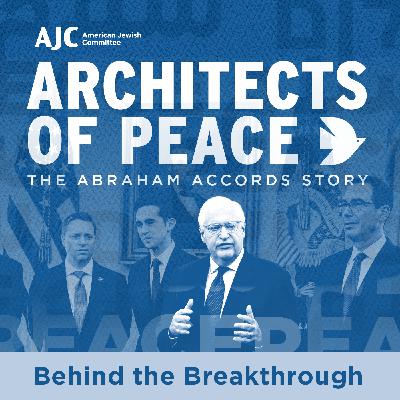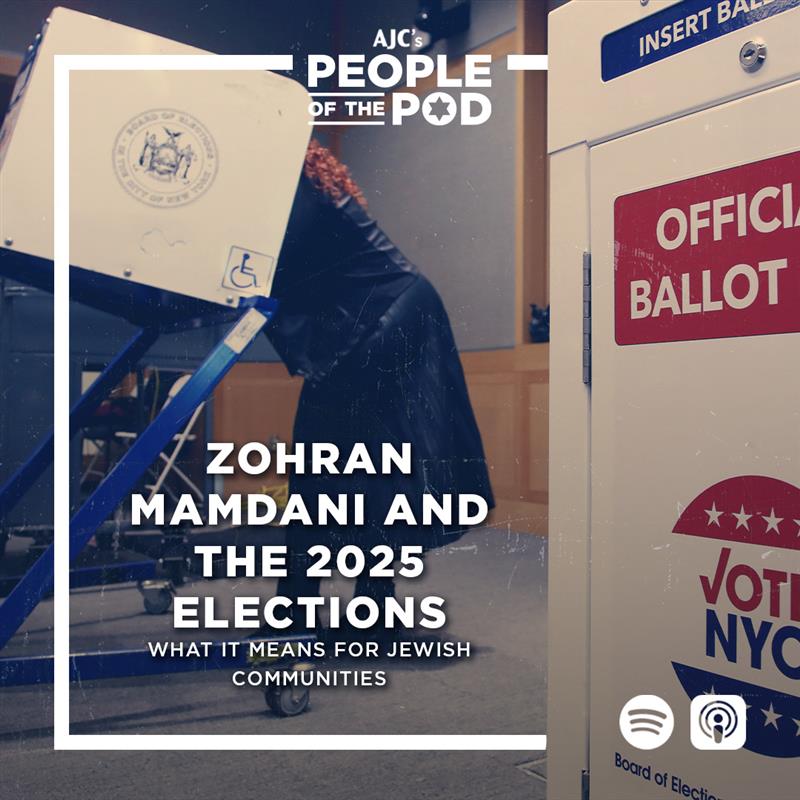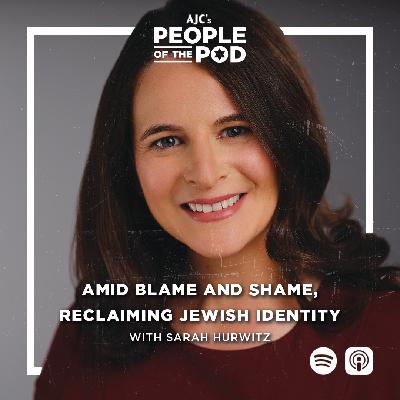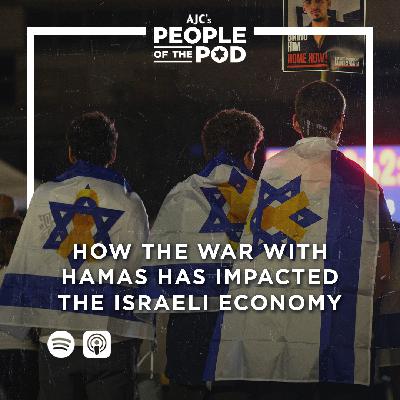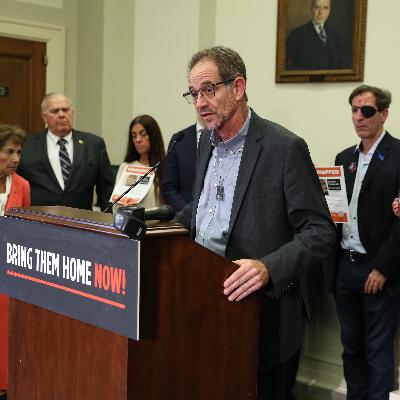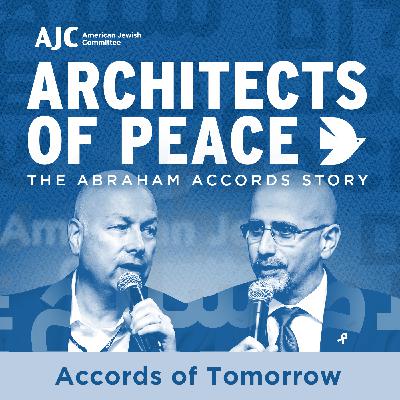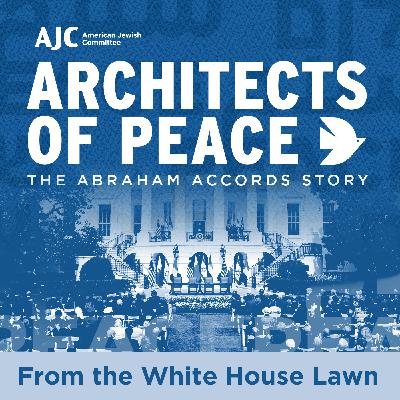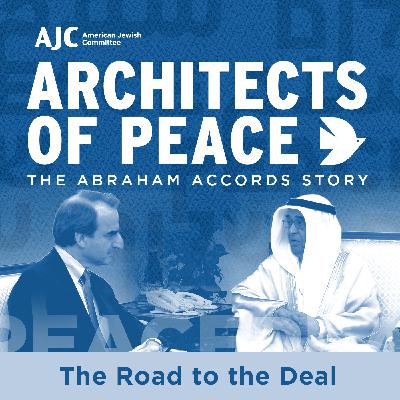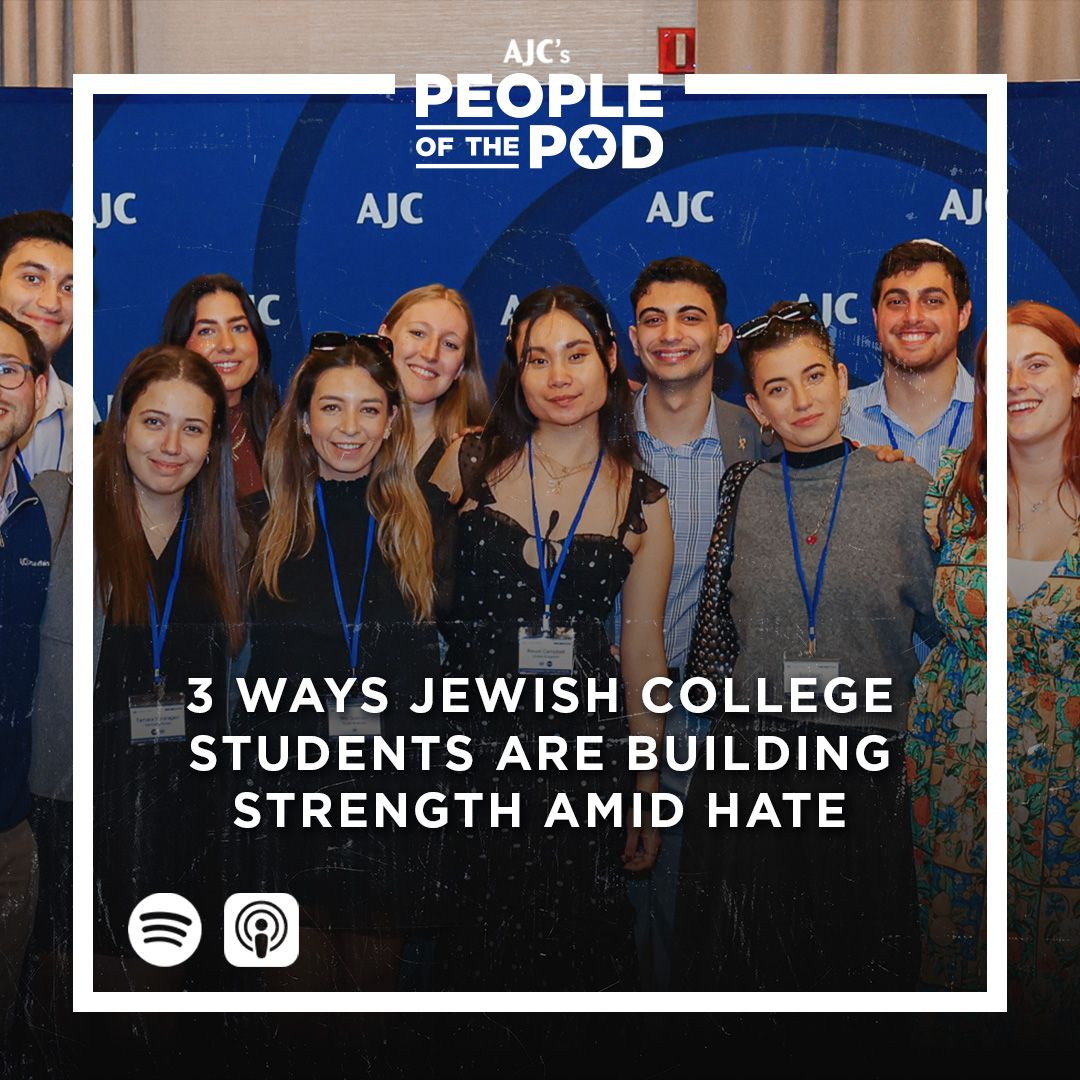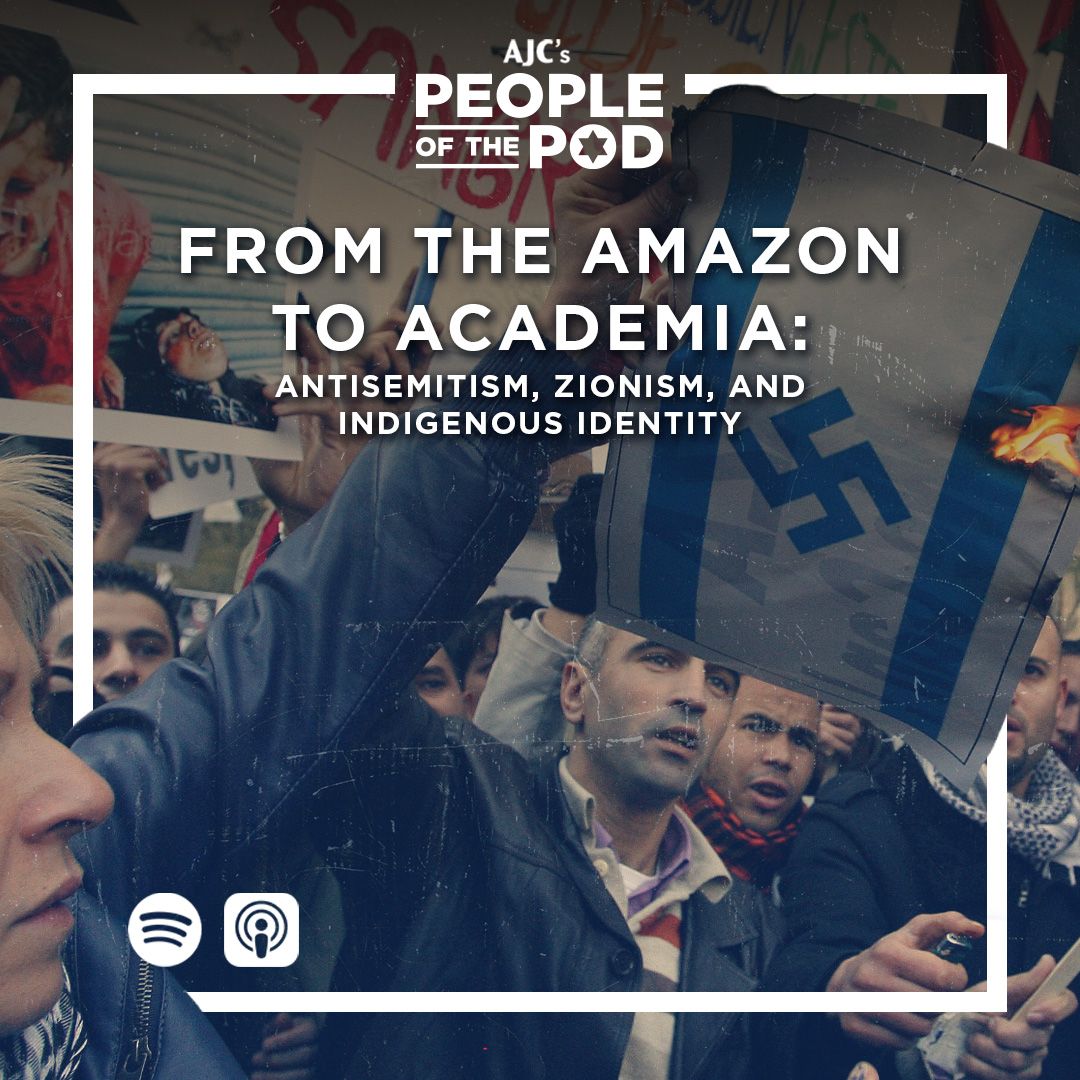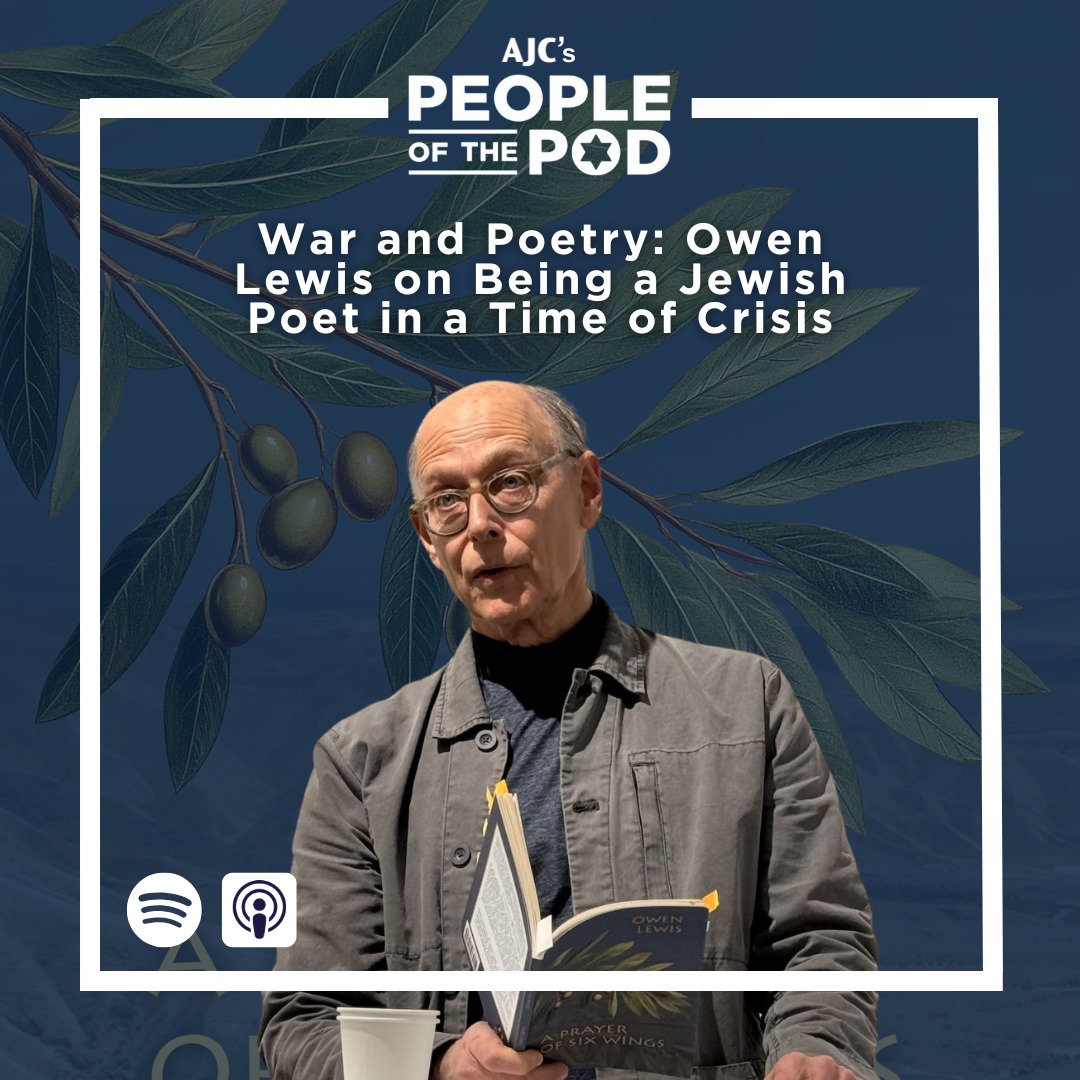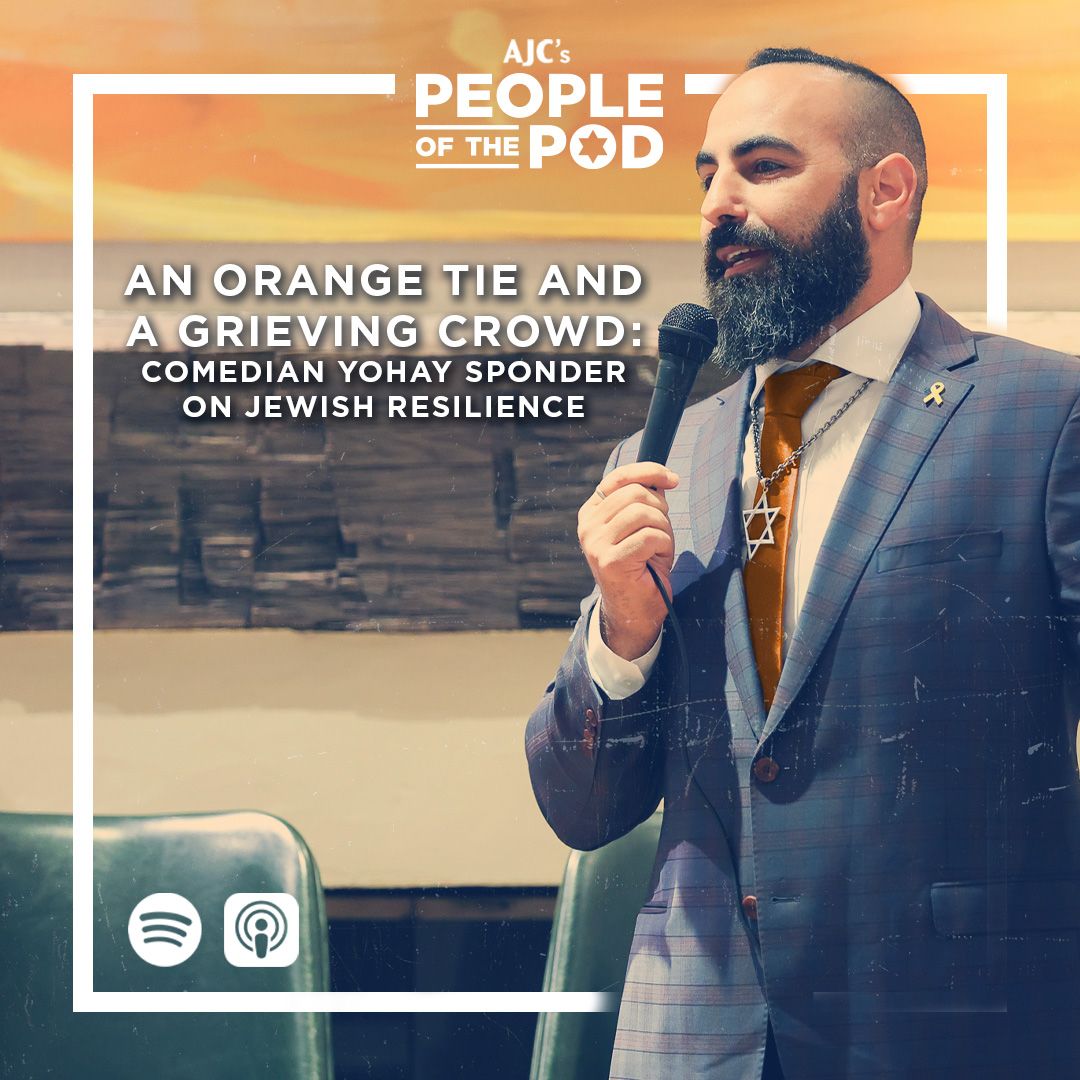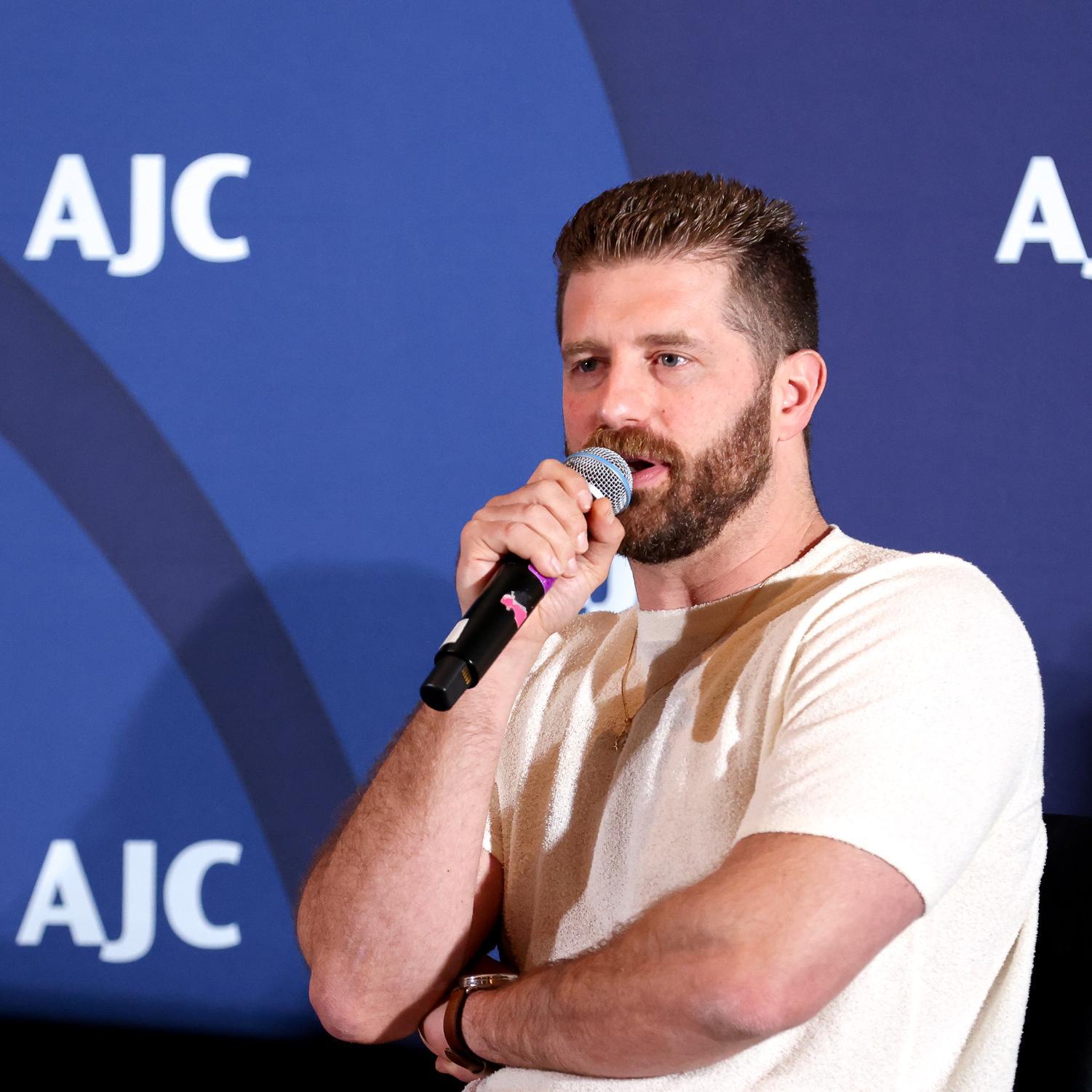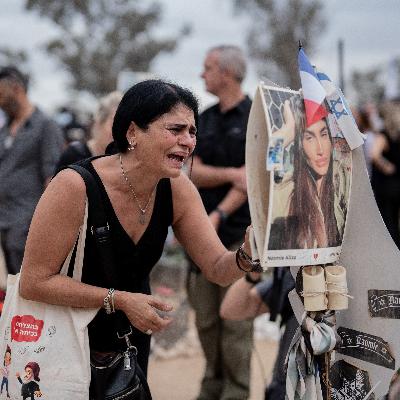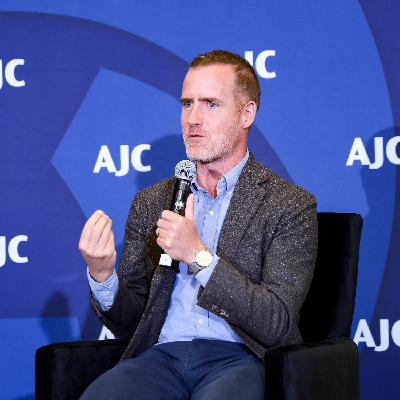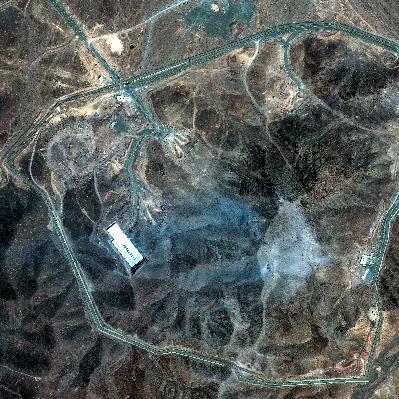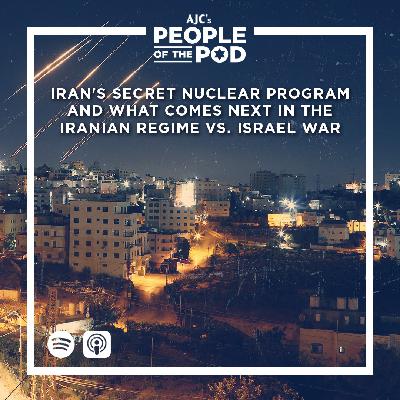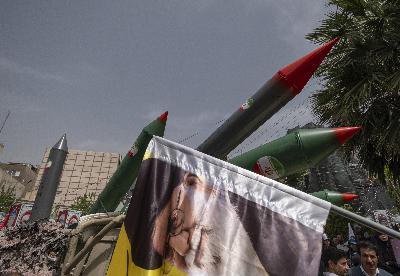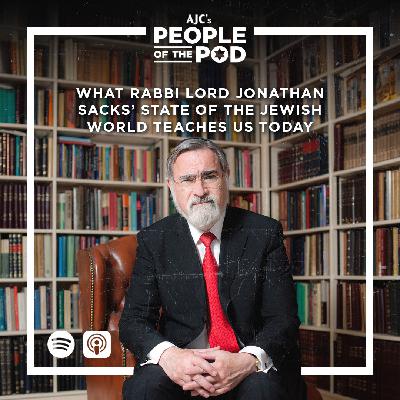Architects of Peace: Episode 2 - Behind the Breakthrough
Description
Tune into the second episode of AJC's newest limited podcast series, Architects of Peace. Go behind the scenes of the decades-long diplomacy and quiet negotiations that made the Abraham Accords possible, bringing Israel, the United Arab Emirates, Bahrain, and later Morocco, together in historic peace agreements.
Former U.S. Ambassador to Israel David Friedman, U.S. Army General Miguel Correa, and AJC Chief Policy and Political Affairs Officer Jason Isaacson unpack the first Trump administration's Middle East strategy, share behind-the-scenes efforts to engage key regional players, and reveal what unfolded inside the White House in the crucial weeks before the Abraham Accords signing.
Full transcript: https://www.ajc.org/news/podcast/behind-the-breakthrough-architects-of-peace-episode-2
Resources:
AJC.org/ArchitectsofPeace - Tune in weekly for new episodes.
AJC.org/AbrahamAccords - The Abraham Accords, Explained
AJC.org/CNME - Find more on AJC's Center for a New Middle East
Listen – AJC Podcasts:
Follow Architects of Peace on your favorite podcast app, and learn more at AJC.org/ArchitectsofPeace
You can reach us at: podcasts@ajc.org
If you've appreciated this episode, please be sure to tell your friends, and rate and review us on Apple Podcasts or Spotify.
Transcript:
Donald Trump: I think we're going to make a deal. It might be a bigger and better deal than people in this room even understand.
Manya Brachear Pashman: In September 2020, the world saw what had been years – decades – in the making: landmark peace agreements dubbed the Abraham Accords -- normalizing relations between Israel and two Arabian Gulf states, the United Arab Emirates and the Kingdom of Bahrain. Later, in December, they were joined by the Kingdom of Morocco. Five years later, AJC is pulling back the curtain to meet key individuals who built the trust that led to these breakthroughs. Introducing: the Architects of Peace.
Shortly after he was elected in 2016 and before he took office, President Donald Trump nominated his company's former bankruptcy attorney David Friedman to serve as U.S. Ambassador to Israel. He gave Friedman two simple tasks.
Task No. 1? Build peace across the Middle East by normalizing relations between Israel and its Arab neighbors. Task No. 2? Solve the Israeli Palestinian conflict that a half dozen previous White House residents had failed to fix.
After all, according to conventional wisdom, the first task could not happen before the second. The future of cooperation between Israel and 20-plus other Arab countries hinged on peace between the Israelis and Palestinians.
Here's former Secretary of State John Kerry.
John Kerry: There will be no advance and separate peace with the Arab world without the Palestinian process and Palestinian peace. Everybody needs to understand that.
Manya Brachear Pashman: Ambassador Friedman disagreed with this conventional wisdom.
David Friedman: We were told initially by most countries that the road to peace began with the Palestinians. This was a hypothesis that I rejected internally, but I thought: 'OK, well, let's just play this out and see where this can go. And so, we spent a couple of years really working on what could be a plan that would work for Israel and the Palestinians. The Palestinians, you know, rejected discussions early on, but we had a lot of discussions with the Israelis.
Manya Brachear Pashman: The son of a rabbi who grew up in Long Island, Ambassador Friedman had been active in pro-Israel organizations for decades, He had advised Trump on the importance of the U.S.-Israel bond during the 2016 presidential election and recommended nothing less than a radical overhaul of White House policy in the region. Not long after his Senate confirmation as ambassador, that overhaul commenced.
In February 2017, President Trump invited Israeli Prime Minister Benjamin Netanyahu to the White House – his first invitation to a foreign leader — and a symbolic one. After their meeting, they held a joint press conference.
Donald Trump: With this visit, the United States again reaffirms our unbreakable bond with our cherished ally Israel. The partnership between our two countries, built on our shared values.
I think we're going to make a deal. It might be a bigger and better deal than people in this room even understand. That's a possibility. So, let's see what we do.
He doesn't sound too optimistic. But he's a good negotiator.
Benjamin Netanyahu: That's the art of the deal.
Manya Brachear Pashman: Nine months later, President Trump made another symbolic gesture -- recognizing Jerusalem as Israel's capital city and moving the American embassy from Tel Aviv to Jerusalem. Though such a move had been approved by Congress in 1995, no president had ever acted upon it.
When Trump's son-in-law, businessman, and senior White House advisor Jared Kushner opened conversations about that 'bigger and better deal,' Palestinians refused to participate, using the pretext of the Jerusalem decision to boycott the Trump administration. But that didn't stop Ambassador Friedman and others from engaging, not only with Israel, but with Arab countries about a new path forward.
AJC's Chief Policy and Political Affairs Officer Jason Isaacson, who has been building bridges in the region since the early '90s, recalls this strategy at the time.
Jason Isaacson: It was very clear for many months, 2019 on into early 2020, that there was a team working under Jared Kushner in the White House that was going from country to country in the Gulf and North Africa, looking to make a deal, looking to make deals that would lead to normalization with Israel, would involve various benefits that the United States would be able to provide. But of course, the big benefit would be regional integration and a closer relationship with the United States.
Manya Brachear Pashman: The pitch for a new path forward resonated in the United Arab Emirates, a Gulf country of 10 million residents, some 11% of whom are Emiratis — the rest expats and migrants from around the world.
The UAE had designated 2019 the Year of Tolerance, an initiative aimed at promoting the country as a global capital for tolerance and respect between diverse cultures and nationalities. That year, the Emirates hosted a historic visit from Pope Francis, and 27 Israeli athletes competed in the 2019 Special Olympics World Games held in the capital city of Abu Dhabi.
The pitch also resonated in Bahrain. In June of that year, during a two-day workshop in Bahrain's capital city of Manama, the Trump administration began rolling out the results of its Middle East tour – the economic portion of its peace plan, titled "Peace to Prosperity."
Jason Isaacson: The White House plan for Peace to Prosperity was a kind of an early set of ideas for Israeli Palestinian resolution that would result in a small, but functional Palestinian state, created in a way that would not require the displacement of Israelis in the West Bank, and that would involve large scale investment, mostly provided by other countries, mostly in the Gulf, but not only, also Europe, to advance the Palestinian economy, to integrate the Palestinian and Israelis' economies in a way that had never happened. And there was discussion that was taking place that all led up to the idea of a very fresh approach, a very new approach to the regional conflict.
Manya Brachear Pashman: The 38-page prospectus set ambitious goals — turning the West Bank and Gaza into tourism destinations, doubling the amount of drinkable water there, tripling exports, earmarking $900 million to build hospitals and clinics.
The Palestinians, angered by Trump's recognition of Jerusalem and viewing the Manama workshop as an attempt to normalize Arab-Israel ties while sidelining their national rights, boycotted the meeting and rejected the plan before ever seeing its details.
But the workshop's host Bahrain, as well as Egypt, Jordan, Morocco, Qatar, Saudi Arabia, and the Emirates participated, to varying degrees. Trump's team rolled out the rest of the plan in January 2020, including a map of land carved out for Palestinians and for Israel.
The plan enabled Palestinians and Arab countries to expand economic opportunities. It enabled Israel to demonstrate that it was open to cooperation. It enabled the Trump administration to illustrate the opportunities missed if countries in the region continued to let Palestinian leadership call the shots.
David Friedman: The expectation was not that the Palestinians would jump all over it. We were realistic about the possibility, but we did think it was important to show that

